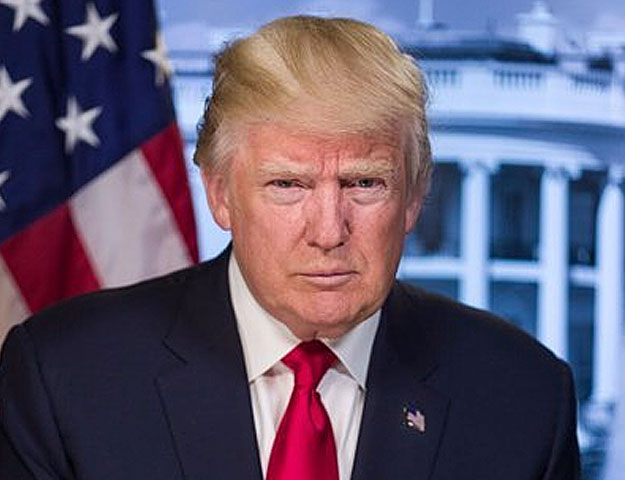By Anita Kumar, McClatchy DC Bureau
Donald Trump’s travel ban isn’t new.
Six of the last seven presidents, both Republicans and Democrats, have relied on the same federal law to keep certain groups of foreigners out of the United States.
Jimmy Carter denied entry to Iranians in April 1980 after a failed rescue mission for American hostages in Iran.
Ronald Reagan barred migrants arriving at the borders from “the high seas” in September 1981, targeting Haitians and Cubans.
Bill Clinton in November 1999 barred those responsible for repressing civilians in Kosovo.
And George W. Bush in June 2001 banned those who planned or carried out wartime atrocities in the Western Balkans.
“In general, all presidents have used executive orders to impact immigration policy,” said Clete Samson, an immigration attorney who spent years as a federal trial attorney for the Department of Homeland Security.
In each case, the presidents relied on 8 U.S.C. 1182(f), a statute that gives them wide latitude over who can come into the country.
“Whenever the president finds that the entry of any aliens or of any class of aliens into the United States would be detrimental to the interests of the United States, he may by proclamation, and for such period as he shall deem necessary, suspend the entry of all aliens or any class of aliens as immigrants or nonimmigrants, or impose on the entry of aliens any restrictions he may deem to be appropriate,” the law says.

Trump cited the law when issuing his executive order last month that froze refugee admissions and temporarily blocked people from seven Muslim-majority countries – Iran, Iraq, Libya, Somalia, Sudan, Syria and Yemen – from entering the United States, even with valid visas.
‘THE UNITED STATES MUST BE VIGILANT DURING THE VISA-ISSUANCE PROCESS TO ENSURE THAT THOSE APPROVED FOR ADMISSION DO NOT INTEND TO HARM AMERICANS AND THAT THEY HAVE NO TIES TO TERRORISM.
President Donald Trump’s executive order’
A flurry of lawsuits was immediately filed after Trump’s order on behalf of immigrants detained or barred from entering the United States.
U.S. District Judge James Robart, a Republican appointee, temporarily blocked the order from taking effect on a nationwide basis Friday following a half-dozen rulings by other federal judges that had backed more limited challenges.
Such a temporary stay is granted generally only if a judge believes that side will prevail on the merits of the case, according to legal experts.
They say that while Trump’s executive order may rely on the same law as his predecessors’, it differs from theirs in two important ways.
First, it’s much broader, banning all people from multiple countries, including those whose status had already been determined.
Second, the order could be deemed unconstitutional because it discriminates against people based on their religion; the order calls for special consideration for followers of minority religions from the affected countries, a certain reference to Christians.

The difference with Trump’s order, said Erin Corcoran, an immigration law professor at the University of New Hampshire Law School, is that usually presidents cite more specific, immediate national threats than Trump’s order did and target those who may come to the United States in the future, not those who already have legal status or are en route.
Critics call Trump’s order a Muslim ban, the same one he spoke of on the campaign trail. But the White House pushes back on the label, saying the nations were not chosen because they are Muslim majority. More than 40 countries that are Muslim-majority were not included in the ban.
“Congress has given the office of the president broad power to suspend entry of foreign nationals when doing so would be in the national interest,” said Raj Shah, deputy communications director at the White House.
“President Trump acted well within his authority and in a manner also exercised by previous presidents in similar ways.”
Steve Legomsky, who served as senior counsel to the secretary of homeland security on immigration issues and as chief counsel of U.S. Citizenship and Immigration Services and emeritus professor of law at Washington University in St. Louis, said Trump used the power in “a very different way than ever before” in part because he didn’t isolate a subcategory of people.
Former acting Attorney General Sally Yates, an Obama appointee who was to serve until Trump’s nominee to lead the Justice Department was installed, was fired after she refused to enforce his executive order because she felt it was intended to disadvantage Muslims.

“I am responsible for ensuring that the positions we take in court remain consistent with this institution’s solemn obligation to always seek justice and stand for what is right,” Yates said in a letter.
“At present, I am not convinced that the defense of the executive order is consistent with these responsibilities nor am I convinced that the executive order is lawful.”
Previous presidential orders didn’t draw court challenges or trigger such a major national debate as Trump’s order.
Most recently, President Barack Obama in August 2011 banned immigrants who had committed or participated in war crimes, crimes against humanity, violations of human rights or violence against any civilian population based on race, color, descent, sex and a host of other conditions that ranged from disability to membership in a particular social group.
“The United States’ enduring commitment to respect for human rights and humanitarian law requires that its government be able to ensure that the United States does not become a safe haven for serious violators of human rights and humanitarian law and those who engage in other related abuses,” he wrote in his order.

Trump has vowed to fight the court cases, saying he will not back down, though his administration has already reversed course and agreed to allow permanent legal residents into the country and dual nationals of the seven countries who are traveling with passports of countries not named in the order.
But White House Press Secretary Sean Spicer on Monday dismissed suggestions that the administration could withdraw the order and rewrite it.
“Clearly the law is on the president’s side,” he said. “The Constitution is on the president’s side. He has broad discretion to do what’s in the nation’s best interest to protect out people.”
“THE LAW IS VERY CLEAR ON THIS. THE PRESIDENT HAS HUGE DISCRETION TO PROTECT THE SAFETY OF THE AMERICAN PEOPLE AND OUR NATION’S INSTITUTIONS WITH RESPECT TO WHO CAN COME INTO THIS COUNTRY.” – White House Press Secretary Sean Spicer

Harold Koh, a former legal adviser at the State Department who’s now an international law professor at Yale University, said, however, that the courts would likely narrow the order as the litigation went on.
“It’s a mark of how this process has been going,” he said. “You could end up having one that’s a shadow of the original order.”























